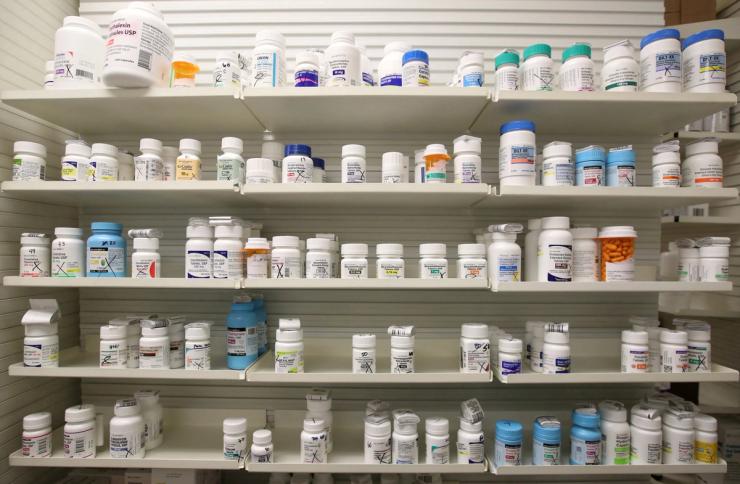the issue
Lowering drug prices in the US is becoming a popular bipartisan issue as populist impulses grow stronger on both the left and the right.
The topic is attracting attention not only from lawmakers in both parties, but also from President Donald Trump’s White House, where a forthcoming executive order is expected to push it to the forefront this week.
But targeting drug prices pits lawmakers against the powerful pharmaceutical industry, which is already mobilizing to oppose drug pricing proposals that are making the rounds in Washington.
the bond
Sens. Josh Hawley, R-Mo., and Peter Welch, D-Vt., locked arms last week to introduce the “Fair Prescription Drug Prices for Americans Act,” which would block pharmaceutical companies from selling drugs in the US at a higher cost than the international average and impose civil monetary penalties on companies that violate the law.
A study commissioned by the Department of Health and Human Services and released by the Biden administration last year found that, as of 2022, US brand drugs and generic medications cost nearly 2.78 times as much as they do in comparison countries.
“We’re getting ripped off,” Welch told Semafor.
“What I appreciate about Sen. Hawley is, he gets it,” he said. “The folks in his state are hammered with these high prices just like the folks in Vermont. This is a universal problem.”
Hawley, who called the proposal a “great way, by the way, to save a gob of money on health care spending,” told Semafor that he’s talking to other Republican senators about potentially signing on as cosponsors. Welch said it would be imperative for other Republicans to back the bill, citing Sen. Chuck Grassley, R-Iowa, as a potential supporter given his work on like-minded proposals. Grassley’s office didn’t return an inquiry about potentially supporting the legislation.
Hawley demurred when asked if he was confident about the path forward but suggested that Trump’s work on the issue means they would have White House backing.
“Confident? No. The president supports it, though; it’s essentially his proposal,” Hawley said.
The View From the white house
Trump is expected to sign an executive order this week that differs in detail from but has the same spirit as the Hawley-Welch bill. The directive, according to Politico, will instruct Trump administration aides to pursue “most favored nation” status for drugs covered under Medicare, aiming to bring their costs in line with lower prices abroad.
The White House has also encouraged House Republicans to include the policy in their sweeping party-line tax and spending bill as a way to pay for part of Trump’s tax cuts, but the GOP looks unlikely to embrace the proposal.
A White House spokesman didn’t return a request for comment on the Hawley-Welch bill.
Welch, who recalled engaging with Trump during his first term about lowering drug costs, said that the Republican president’s support could give the bill a huge boost among the GOP.
“The unknown question is, what does Trump do,” The Vermont Democrat said. “Because my Republican colleagues, by and large, won’t peek their eyes above the foxhole unless they get an all-clear from Trump, so that’s a real impediment.”
The View From the drug lobby
The pharmaceutical industry has fiercely opposed proposals to lower drug prices and is working behind the scenes to kill them. The industry’s biggest trade group, PhRMA, told lawmakers that Trump’s proposal could cost drugmakers up to $1 trillion over a decade, Bloomberg reported earlier this month.
Reached for comment about the Hawley-Welch Bill, a PhRMA spokesman said that legislators should focus their attention on fixing flaws in the US system rather than “importing failed policies from abroad.”
“Government price setting in any form is bad for American patients,” Alex Schriver, senior vice president of public affairs at PhRMA, said in a statement to Semafor. “To lower medicine costs for Americans, we should address the growing share of medicine costs going to middlemen in the system. We are the only country in the world that lets insurers, PBMs and hospitals take 50% of every dollar spent on medicines while driving up out-of-pocket costs for patients.”
Notable
- House Republicans are considering getting rid of a tax deduction for pharmaceutical advertising as part of their sweeping tax cut package, according to Bloomberg.
- Trump backed off an effort to lower drug prices during his first term, per CNN.


